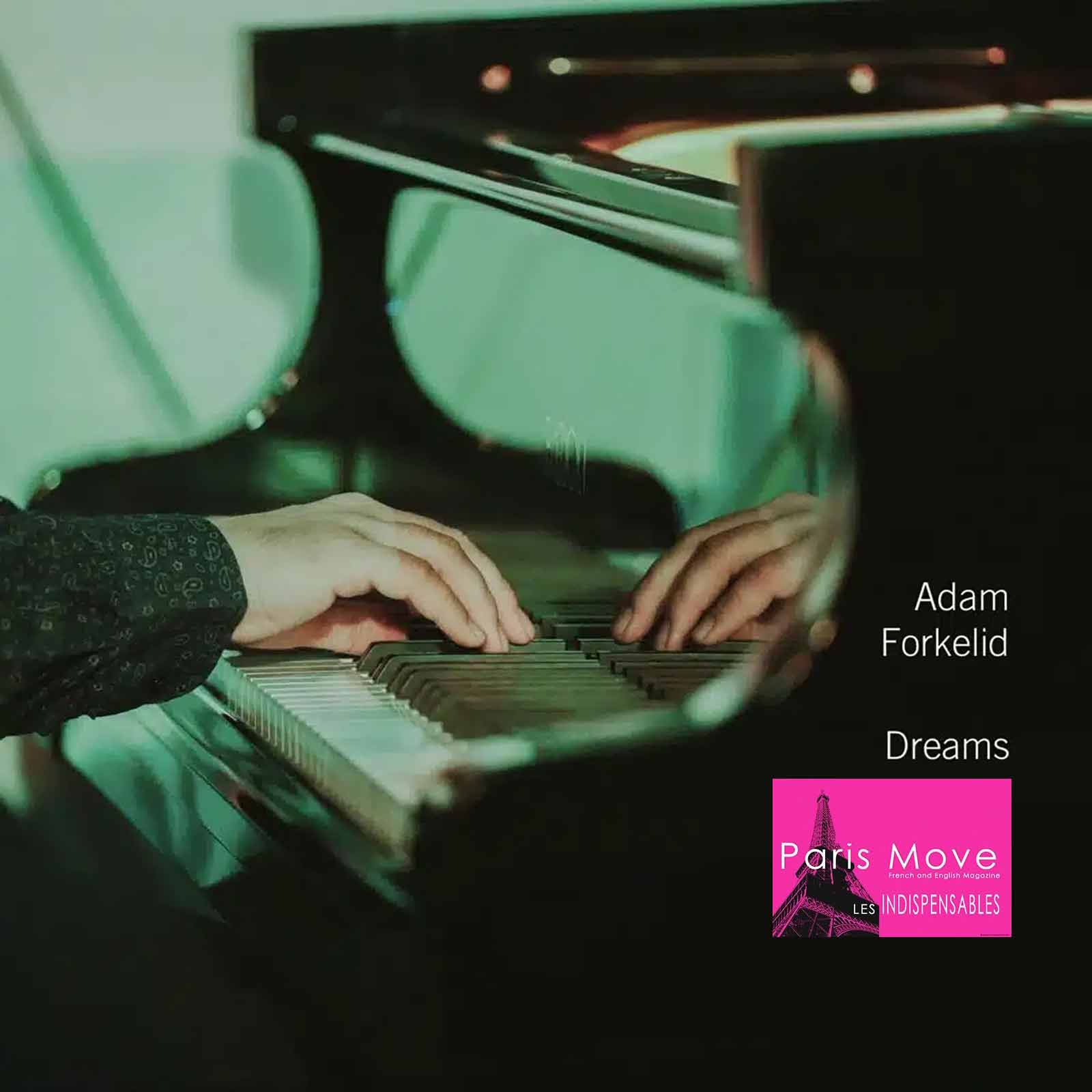| Jazz |

Adam Forkelid and the Art of Returning to First Principles.
In the contemporary landscape of jazz piano, Adam Forkelid occupies a position that is both distinctive and strangely underappreciated outside Europe. For two decades, he has been a vital presence in the Scandinavian scene, collaborating with artists as formidable as Maria Schneider and Nils Landgren, and building a career defined by quiet consistency rather than grand spectacle. Yet his latest solo release, recorded in an intimate Stockholm Hall before just fifty listeners, may be the album that fully reveals his artistry to the wider world.
When I last wrote about Forkelid, I described him as “the perfect musical synthesis between Joe Zawinul, at least in his solo career, and Wayne Shorter.” The line may have seemed bold at the time, but this new album proves the point with unusual clarity. What was missing from his discography until now was a solo statement, a record stripped of ensemble interplay, in which the pianist’s voice, his sense of space, and his architecture of thought could stand unadorned. That absence is now filled, and the result is not only a portrait of an artist at the height of his powers, but also a meditation on what solo jazz piano can mean in the 21st century.
It is tempting, and perhaps inevitable, to place Forkelid alongside Bob James’s luminous Dancing on the Water. Both works are suffused with classical resonances, compositions shaped by an awareness of form and a concern for clarity of intention. Both exude a purity, a serenity of line that suggests a return to first principles. One hears not only jazz, but echoes of European art music: counterpoint, motivic development, the suggestion of a chorale hidden beneath the improvisation. In both Forkelid and James, there is a refusal to pander, a refusal to dilute complexity in the name of accessibility. And yet, paradoxically, the music is inviting, even seductive. The categories, jazz, classical, contemporary chamber, fall away. What remains is elegance.
Forkelid’s six tracks are neither polished studio miniatures nor extended concertos. They are something closer to études, explorations of a central idea, variations spun out in real time. Young pianists will study them the way students once studied the solo works of Keith Jarrett or Paul Bley: not to imitate, but to understand the logic at work before finding their own way forward. For all its lyricism, Forkelid’s music is rigorous, even stubborn. It insists on its own path, balancing poetry and structure, seduction and resistance.
That balance has deep roots. Forkelid is, in a sense, the heir to two traditions: the European art-music lineage, with its emphasis on form and discipline, and the American jazz tradition, where improvisation, swing, and the blues provide the generative spark. In his playing one hears a dialogue between these worlds. There are shades of Jarrett’s Köln Concert, the sense of an improviser caught between meditation and revelation, but also the harmonic clarity of Bill Evans, the lyric abstraction of Wayne Shorter, and, in fleeting moments, the angular bite of Thelonious Monk. Yet Forkelid resists easy comparison. He is not borrowing a language; he is reconfiguring it for a contemporary age in which boundaries between genres are increasingly porous.
Part of the uniqueness of this album lies in its circumstances. On an October evening in 2024, Forkelid sat before his beloved Fazioli F278 concert grand at the Krematoriet, a Stockholm venue that seats barely fifty. With no fixed program, only fragments, sketches, and faint outlines, he allowed the atmosphere of the room to dictate the direction of the music. The performance unfolded as a kind of shared reverie, a communion between artist and audience. Four of the six tracks are wholly improvised, one was drawn from the faint residue of a phone recording, and the last reimagines “Turning Point,” a quartet work released earlier that year. The result is imperfect by design: mutable, searching, the sound of music being discovered rather than rehearsed.
It is rare for such a concert experience to translate well onto disc. Much of the appeal of improvised solo piano lies in its ephemerality, the knowledge that a phrase once played can never be played again, that the resonance of the room belongs to a specific night and a specific set of ears. Yet Forkelid’s recording manages to preserve that aura. Listening at home, one closes the eyes and imagines being among the fifty listeners who shared the experience, and perhaps even feels a pang of envy. For those of us across the Atlantic, it is tempting to wish Forkelid would bring this form of concert to American audiences, where the appetite for risk-taking, genre-defying music is perhaps greater than ever.
What this album ultimately underscores is that Adam Forkelid is not merely a skilled pianist, but one of the essential voices of his generation. In a moment when so much music is flattened by algorithms, packaged for streaming platforms, and diluted into background sound, Forkelid insists on the opposite: music as concentration, as attention, as a form of life. His work reminds us that art is not ornamental, but necessary.
The history of jazz piano is, in many ways, the history of negotiation between freedom and structure, individuality and tradition, from Jelly Roll Morton’s compositional precision to Bud Powell’s bebop ferocity, from Evans’s impressionistic harmonies to Jarrett’s improvisatory vastness. Forkelid enters that continuum not as a follower, but as a contributor, staking out his own terrain. His album is both an homage to that lineage and a quiet challenge to extend it forward.
If there is a single truth this recording offer, it is that Adam Forkelid must now be recognized among the most important musicians of the 21st century, a pianist whose work is not confined to Sweden or Europe, but speaks to the ongoing global conversation about what music can be, and why it matters.
Thierry De Clemensat
Member at Jazz Journalists Association
USA correspondent for Paris-Move and ABS magazine
Editor in chief – Bayou Blue Radio, Bayou Blue News
PARIS-MOVE, October 4th 2025
Follow PARIS-MOVE on X
::::::::::::::::::::::::
Musician :
Adam Forkelid | Grand Piano
Track Listing :
Dream no. 1: Liminality
Dream no. 2: Unfold
Dream no. 3: Time
Dream no. 4: Repose
Dream no. 5: The Quiet Above
Dream no. 6: Strive
Recorded by Adam Forkelid
Mixed and Mastered by Klaus Schneuemann, 4ohm Berlin.
Photo by Joona Tolvanen
Cover Design by Jonas Holmberg

